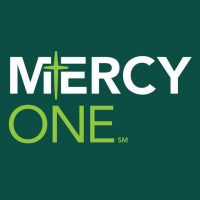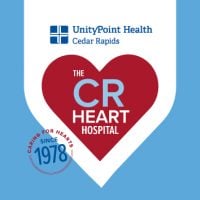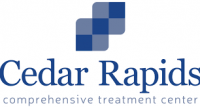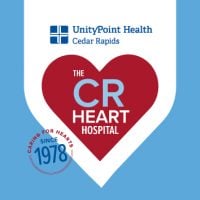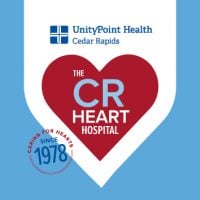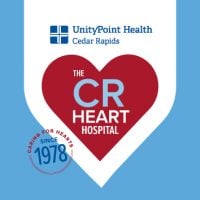Mercy Medical Center - Dubuque
Drug Rehab Center in Dubuque, Iowa
Mercy Medical Center, located in Dubuque, Iowa, offers specialized care in various areas such as obstetrics, surgery, orthopedics, cardiovascular health, pediatrics, rehabilitation, addiction, and substance abuse with a team of qualified medical professionals who provide innovative care in a safe and healing environment.
About This Iowa Facility
Mercy Medical Center - Dubuque is an acute care facility located in Dubuque, Iowa. It provides specialized care in the areas of obstetrics, surgery, orthopedics, cardiovascular health, pediatrics, rehabilitation, and addiction and substance abuse. With a team of highly qualified medical professionals, Mercy Medical Center is dedicated to providing compassionate and innovative care in a safe and healing environment.
Mercy Medical Center - Dubuque provides a variety of services designed to treat addiction and substance abuse. This includes programs for medically supervised detoxification, as well as inpatient and outpatient treatment. The addiction specialists offer comprehensive counseling and treatment plans tailored to the individual’s needs. In addition, family members of individuals with addiction and substance abuse can receive support and education.
Mercy Medical Center - Dubuque is accredited by the Joint Commission and is licensed by the state of Iowa. The hospital also holds several awards, including being ranked “Best Overall Hospital in Iowa” by Healthgrades, an independent ratings and review organization. In addition, the addiction team has been recognized nationally for their excellent care and commitment to providing the highest-quality treatment.
Genders
Ages
Modality
Additional
Accreditations
State License
SAMHSA

JCAHO
Conditions and Issues Treated
Opioid addiction treatment should be done in a medically supervised drug rehab. Opioid addiction treatment will include detoxification and drug rehab counseling to help both the user and their loved ones learn how to live a successful sober lifestyle. Methadone, buprenorphine, and naltrexone are three medications that can help treat opioid addiction. Individual drug rehab counseling sessions can be helpful to discuss any questions or concerns with the drug treatment program.
Levels of Care Offered at Mercy Medical Center - Dubuque
This center offers a variety of custom treatment tailored to individual recovery. Currently available are Aftercare Support, Detox, Drug Rehab, Intensive Outpatient, Outpatient, with additional therapies available as listed below.
Detoxification is the first step in drug addiction treatment. A controlled environment where symptoms can be managed with medication and close observation is provided by drug detoxification. Detoxification is an essential step in the recovery process, but it is also one of the most dangerous. Due to the potential danger, it’s critical to understand what detoxification is and how to complete it safely.
A detox program helps the person physically withdraw from drugs and helps them track their progress. So, suppose the person isn’t ready for sobriety (or relapses). In that case, the treatment professionals can catch it early and help re-orient them towards recovery.
The Intensive Outpatient Program at Mercy Medical Center - Dubuque is for those who need intensive care but would rather get it in the comfort of their own home. The treatment programs vary in duration and intensity and can be tailored to suit the individual’s needs. IOP helps the patient to live at home and gradually get back to their routine life.
Daily trips to the hospital that provides the treatment include intensive outpatient services (IOP). The patients gradually get back to their everyday lives. IOP benefits the most when the patients have a supportive family member or friend who can encourage them in their recovery.
Individuals struggling with drug addictions can get help from several treatment options, including inpatient and outpatient programs. Outpatient drug treatment programs can also provide patients with different levels of care, usually depending on the patient’s degree of addiction.
At an outpatient program in Dubuque, a patient will attend a recovery program during the day and return home in the evening. Suppose a patient is struggling with drug addiction. In that case, an outpatient program can serve as an effective transition point during the recovery process.
Aftercare is a part of drug rehabilitation. It is also known as “post-treatment support.” Aftercare programs are available for addicts after they complete drug rehab. It is often the final step in the recovery process. The goal of aftercare is to ensure that addicts maintain their achievements in rehab and do not relapse. Professionals generally provide aftercare (including addiction therapists, physicians, social workers, psychologists) and involve individual and group therapy sessions.
Therapies & Programs
Individual therapy is a critical component of addiction recovery. It allows the patients to go deep into their core issues and discover how to handle those problems better. Therapy can be conducted in individual sessions as well as group settings. In individual therapy for addiction, the patient meets with their therapist one-on-one to focus on the underlying issues. This allows patients to open up and discuss personal topics they may not feel comfortable discussing in a group setting. This type of therapy can help develop solutions specific to each patient, which helps speed up the recovery process.
Couples therapy is beneficial for couples in which at least one partner has a substance use disorder. This type of therapy can help partners improve communication skills, which is an important factor in a healthy relationship. It can also help partners better understand one another so they have a greater understanding of how the other partner may be feeling.
Benefits of couples therapy include:
- Improvement in communication skills
- Increased understanding of the dynamics within a relationship
- Increased sense of support and trust in the relationship
- Better teamwork between partners/increased willingness to listen and work together
- Enhanced tolerance of each other’s shortcomings
- Improved ability to have open, honest communication with each other
Family therapy is a crucial part of drug treatment and getting sober. It is one of the most effective ways to help addicts stay on the path to long-term sobriety. When a drug addict decides that they want to try and get sober, it takes the support of every person they love to succeed. It can be incredibly difficult for loved ones to watch an addict go through the pain and suffering of withdrawal, but by being there with them and supporting them, they can help to make sure that the addiction never returns.
One of the most important parts of family therapy is the relapse prevention plan. During treatment, therapists and doctors will often sit down with the addict and their family to develop a plan in case the addict ever feels like they want to use again. This plan should involve steps the addict and family can take together to prevent them from relapsing in the future. An addict’s family can play a vital part in helping them to avoid relapse because they can spot the warning signs and help them get back on track before it becomes too much of a problem.
Group therapy helps prevent addicts from feeling isolated or unique in their situation by offering a sense of comfort and fellowship. It also creates a forum for addicts to build their support systems and learn from each other. The group therapy sessions at Mercy Medical Center - Dubuque occur in a group setting rather than one-on-one to create a safer, controlled environment where addicts feel comfortable.
Rational Emotional Behavior Therapy aims to help you understand your emotions and how they affect your behaviors and addiction. It breaks down the addiction and behaviors behind it. Those who complete the program will identify their feelings and reactions and positively change their behaviors.
The best drug treatment centers offer various services to help addicts learn how to live without drugs. Since addiction is a chronic physical and mental illness, addicts need to learn as many life skills as possible to help them stay clean and sober.
Many drug treatment centers like Mercy Medical Center - Dubuque offer life skills activities as part of their addiction recovery programs. Examples include cooking classes, employment training, resume writing seminars, parenting classes, and computer training. When addicts have various life skills to lean on, they’re better equipped to put their addiction behind them for good.
The primary goal of life skills activities at drug treatment centers like Mercy Medical Center - Dubuque is to help addicts recover from addiction and learn how to live a useful, productive life. Life skills activities help addicts find employment, take care of their families, and give back to the community. After learning about these various life skills, addicts are better prepared to return to society and lead happy healthy lives.
MercyOne Associated Centers
Discover treatment facilities under the same provider.
No items foundLearn More About MercyOne Centers
Additional Details
Specifics, location, and helpful extra information.
Dubuque, Iowa 52001 Phone Number(563) 589-8925 Meta DetailsUpdated November 25, 2023
Staff Verified
Patient Reviews
There are no reviews yet. Be the first one to write one.
Dubuque, Iowa Addiction Information
Iowa ranks 2nd lowest in the nation for illicit drug use, but 12% of its residents are still using these drugs every single year. Methamphetamines account for more than 90% of all drug-related prison admissions in Iowa. Alcohol is the most widely abused substance in the state, with 23% of residents admitting to heavy drinking.
Dubuque is a city in Iowa with a population of over 58,000 people. Like most cities, Dubuque has its share of drug abuse problems. Heroin and methamphetamine are the drugs of choice in the area, and they are causing a lot of harm to the community. Treatment types include cognitive-behavioral therapy, dialectical behavior therapy, and acceptance and commitment therapy.
Treatment in Nearby Cities
- Cedar Falls, IA (90.3 mi.)
- Cresco, IA (95.3 mi.)
- Fairfield, IA (122.4 mi.)
- Des Moines, IA (164.0 mi.)
- Atlantic, IA (235.5 mi.)
Centers near Mercy Medical Center - Dubuque
The facility name, logo and brand are the property and registered trademarks of Mercy Medical Center - Dubuque, and are being used for identification and informational purposes only. Use of these names, logos and brands shall not imply endorsement. RehabNow.org is not affiliated with or sponsored by Mercy Medical Center - Dubuque.
